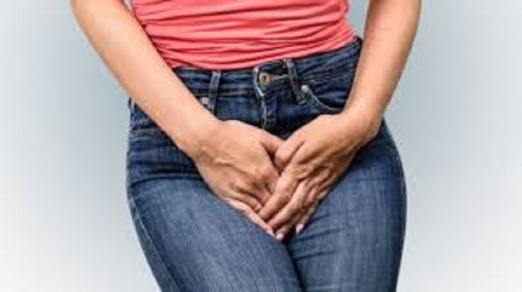Loss of control over urine is a sign of disease

April13Kathmandu.You may have often seen or heard that many people have the problem of passing urine frequently. Usually this is due to drinking too much liquid. But sometimes it can also be a sign of some serious health problems.
According to a study published in the International Journal of Community Medicine and Public Health (IJCMPH), urinary incontinence (UI), that is, inability to control urine, is a common problem in India. It affects both men and women. However, this problem is almost half in men as compared to women.
Women are at a higher risk after delivery, during menopause and with increasing age. 10-45% of women in the country suffer from this problem. At the same time, about 5-15% of the youth have this problem. This problem also increases in men with increasing age.
According to a study published in the National Library of Medicine, around 423 million people over the age of 20 worldwide suffer from some form of urinary incontinence. This is a serious problem, but people do not talk about it due to shame. This problem is even more in rural areas because there are fewer medical facilities there.
What is urinary incontinence?
The problem of not being able to control urine through the bladder is called urinary incontinence. It is not a disease but a symptom, which can be caused by some other health problem.
Usually people hesitate to talk about it. This problem can happen to anyone. However, elderly and pregnant women are at a higher risk. There are 4 types of urinary incontinence.
Causes of frequent urination
There can be many reasons for this, ranging from lifestyle to many serious health problems. Drinking too much water or other beverages in a short period of time can cause frequent urination. There are many other reasons for this, including caffeine and alcohol consumption, side effects of some medicines, pregnancy, increasing age.
Apart from this, some health issues like urinary tract infection (UTI), over-active bladder (OAB), kidney disease and diabetes also cause frequent urination. There can be some other reasons for urinary incontinence.
Symptoms of urinary incontinence
The main symptom of urinary incontinence is the inadvertent leakage of urine. This can happen suddenly or gradually as leakage. It may feel like the bladder has not emptied completely yet. You may feel the need to pass urine frequently at night. There are some other symptoms of urinary incontinence.
Treatment of urinary incontinence
Urinary incontinence can be treated in a variety of ways. These include lifestyle changes, exercise, medications, and surgery. Doctors choose treatment based on the cause of incontinence.
Ways to prevent urinary incontinence
To avoid the problem of frequent urination, some changes in lifestyle are required. Such as-
- Maintain your weight. This reduces pressure on the bladder.
- Do regular exercise. This strengthens the pelvic floor muscles.
- Avoid smoking and drinking. These interfere with the functioning of the bladder.
- Avoid carbonated drinks and artificial sweeteners.
- Drink plenty of water, but limit your liquid intake before bed.
- Avoid constipation as it can put pressure on the bladder. For this, take a fiber-rich diet.
- Make it a habit to pass urine at a specific time. Gradually increase the time so that the bladder can get trained for more urine retention.
Common questions and answers related to urinary incontinence
How many times should one pass urine in a day?
Urologist Dr. says that on an average most people pass urine about 7-10 times a day. If you have to get up to pass urine every 30 minutes to an hour, then it can be a symptom of some disease. However, if you are drinking a lot of water or taking certain medicines, then it is normal.
How does urinary incontinence affect a person?
Urinary incontinence not only affects the bladder, but it can also affect many parts of the body and emotions. Constant wetness can cause skin rashes or infection. The risk of urinary tract infection increases due to the bladder not being completely empty. In severe cases, it can damage the kidneys.
Apart from this, there is always a fear of when the urine will come out. People start shying away from going out or participating in social events because they fear feeling embarrassed. This can make them lonely and their quality of life can be affected. Therefore, if someone has this problem, it is very important to consult a doctor.
Can urinary incontinence be cured?
Dr. says that yes, treatment of urinary incontinence is possible. Its symptoms can be reduced to a great extent. Therefore, consult a doctor without any panic.
Share this with your friends:
प्रत्येक महिला पुरुषभन्दा कमजोर छैनन् : कमला भासिन
 नरेश ज्ञवाली ►
भदौ २७, काठमाडौं। दक्षिण एसियामा लैङ्गिक समानता, शिक्षा, गरिबी निवारण, मानवअधिकार र शान्तिका...
नरेश ज्ञवाली ►
भदौ २७, काठमाडौं। दक्षिण एसियामा लैङ्गिक समानता, शिक्षा, गरिबी निवारण, मानवअधिकार र शान्तिका...
पुरुष कलमले पूर्ण नारीलाई लेख्न सक्दैन
 काठमाडौं। मान्छेहरू कडा भएर बोलेको भन्दा नरम भएर बोलेको मनपर्छ । खरा कुराभन्दा नरम, सरस र सलिल कुराहरू मनपर्छ । तर...
काठमाडौं। मान्छेहरू कडा भएर बोलेको भन्दा नरम भएर बोलेको मनपर्छ । खरा कुराभन्दा नरम, सरस र सलिल कुराहरू मनपर्छ । तर...
कालो तिलले कम्मर दुखेको र अनुहारमा भएको पोतोको उपचार गर्छ
 काठमाडौं । कालो तिल अथवा तिलबाट प्राप्त हुने बिऊ तेल उत्पादनको लागि प्रयोग गरिन्छ । अनुहारमा चायाँ, पोतो वा दाग,...
काठमाडौं । कालो तिल अथवा तिलबाट प्राप्त हुने बिऊ तेल उत्पादनको लागि प्रयोग गरिन्छ । अनुहारमा चायाँ, पोतो वा दाग,...
दुबईमा पहिलो पटक नेपाली कल्चरल पहिरनको फेसन शो सम्पन्न
 काठमाडौं। गत माघ २८ गते दुबईमा नेपाली कल्चरल पहिरनको फेसन शो पहिलो पटक फेसन फ्युजन २०१७ सम्पन्न भयो । एनआरएन...
काठमाडौं। गत माघ २८ गते दुबईमा नेपाली कल्चरल पहिरनको फेसन शो पहिलो पटक फेसन फ्युजन २०१७ सम्पन्न भयो । एनआरएन...
उमेर अनुसारको हुनुपर्छ खान्की, अनि मात्र मानिस स्वस्थ रहन्छ
 काठमाडौं। पोषणको आवश्यकता उमेरअनुसार परिवर्तन हुन्छ । उमेरको हरेक अवस्थामा स्वयंलाई स्वस्थ राख्न शरीरलाई...
काठमाडौं। पोषणको आवश्यकता उमेरअनुसार परिवर्तन हुन्छ । उमेरको हरेक अवस्थामा स्वयंलाई स्वस्थ राख्न शरीरलाई...
मुलुकका सम्मानित पदमा महिलाको उपस्थिति, सबैका लागि आशाको ढोका उघारे
 काठमाडौं। अहिले नेपालका तीनवटै अंगका प्रमुख महिला भएकाले नेपाली राजनीतिक क्षेत्रमा मात्र नभएर सामाजिक...
काठमाडौं। अहिले नेपालका तीनवटै अंगका प्रमुख महिला भएकाले नेपाली राजनीतिक क्षेत्रमा मात्र नभएर सामाजिक...
यी भोजन खाए छाला सुन्दर हुन्छ !
 काठमाडौं। स्ट्रबेरी : यो भिटामिन सीले भरपुर हुन्छ । भिटामन सीले छालालाई चाउरीबाट जोगाएर सधैं जवान राख्न मद्दत...
काठमाडौं। स्ट्रबेरी : यो भिटामिन सीले भरपुर हुन्छ । भिटामन सीले छालालाई चाउरीबाट जोगाएर सधैं जवान राख्न मद्दत...
लोग्नेमान्छेको जात केटी देखेपछि.....
 काठमाडौं । शान्ताको विवाह भएको पाँच वर्ष बितिसक्दा पनि छोराछोरी भएनन् बरु उनलाई एकाएक ब्लड क्यान्सर भयो । समयले...
काठमाडौं । शान्ताको विवाह भएको पाँच वर्ष बितिसक्दा पनि छोराछोरी भएनन् बरु उनलाई एकाएक ब्लड क्यान्सर भयो । समयले...
मनोसामाजिक समस्या के हो?
 साउन ११, काठमाडौं । मनोसामाजिक समस्या भन्नाले मन र समाज वीच हुने समस्या हो । यो जो कोही व्यक्तिलाई पनि हुन सक्छ ।...
साउन ११, काठमाडौं । मनोसामाजिक समस्या भन्नाले मन र समाज वीच हुने समस्या हो । यो जो कोही व्यक्तिलाई पनि हुन सक्छ ।...
महिलाको दोस्रो विवाहको कुरा सुन्दा पढेलेखेकैले अनुहार बिगार्छन्
 काठमाडौं। दोस्रो विवाहबारे मैले नसोचेको, नचाहेको होइन । तर, म मेरा आत्मीयसँग फेरि विवाह गर्नेबारे कुरा गर्छु,...
काठमाडौं। दोस्रो विवाहबारे मैले नसोचेको, नचाहेको होइन । तर, म मेरा आत्मीयसँग फेरि विवाह गर्नेबारे कुरा गर्छु,...










